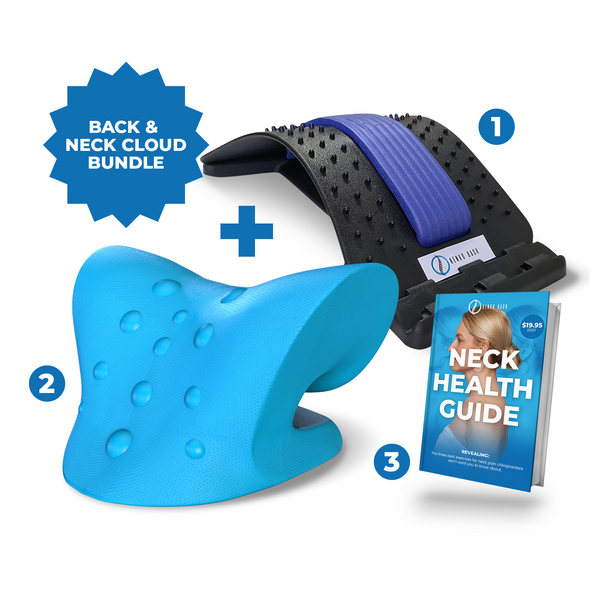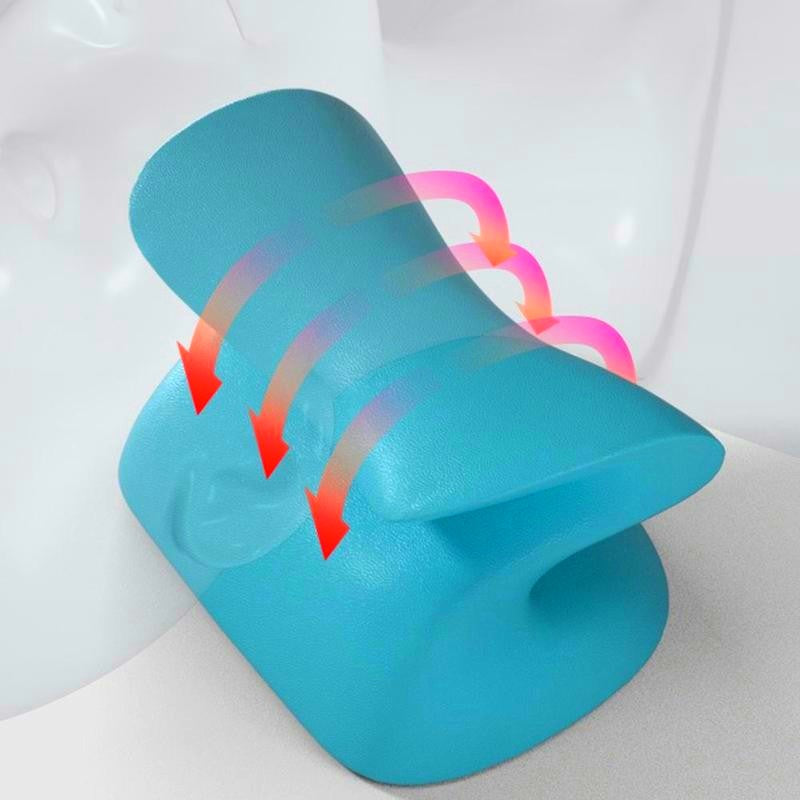Why the Neck Cloud is a Must-Have for Alleviating Neck Stress
Why the Neck Cloud is a Must-Have for Alleviating Neck Stress
Blog Article
The Influence of Tension on Neck Discomfort: Approaches for Lowering Stress and Pain
In today's hectic globe, it's obvious that stress and anxiety has actually become a prevalent element in the beginning and exacerbation of neck pain. The intricate relationship between stress and anxiety and muscle mass tension frequently leaves individuals seeking alleviation from the discomfort that occurs. By discovering targeted methods aimed at lowering stress and promoting leisure, one can start to resolve the origin of neck discomfort and work in the direction of a more balanced state of health. Join us on a journey to untangle the influence of tension on neck discomfort and uncover effective ways to minimize pain and boost overall lifestyle.
Comprehending Stress-Related Neck Discomfort
Stress-related neck discomfort can manifest as tension, tightness, or pain in the neck and shoulder area. The connection between stress and anxiety and neck discomfort exists in the body's physical reaction to tension, which can result in muscle mass stress and rigidity in the neck muscular tissues.

Identifying Common Tension Areas
One common tension location is the neck, where anxiety typically materializes literally. Tension migraines, rigid neck muscular tissues, and restricted array of motion are common signs of stress-related neck tension. Being aware of these common tension areas can help individuals identify the physical signs of stress and take steps to address them prior to they intensify right into chronic discomfort or pain.
Executing Relaxation Techniques
To effectively handle stress-related tension in the body, carrying out relaxation methods is important. Leisure methods are valuable devices for lowering neck discomfort triggered by stress. Deep breathing exercises can assist relax the mind and kick back stressful muscles in the neck and shoulders (neck cloud). Exercising mindfulness meditation can also be useful in alleviating stress and promoting relaxation. Progressive muscular tissue relaxation, where you systematically tense and after that loosen up different muscle mass groups, can launch built-up tension in the neck area. Additionally, tasks like yoga and tai chi incorporate both physical activity and relaxation, making them efficient techniques for lowering tension and neck discomfort. Taking regular breaks throughout the day to stretch and unwind can prevent muscular tissue stiffness and stress from gathering. By including these leisure techniques into your everyday regimen, you can help manage tension degrees, decrease stress in the neck, and alleviate pain associated with stress-induced neck pain.
Including Self-Care Practices
Integrating self-care practices is important for maintaining overall wellness and managing stress-related neck discomfort efficiently. Participating in routine physical activity, such as gentle stretching exercises or yoga, can help reduce tension in the neck and shoulders. Exercising excellent pose throughout blog here the day and taking regular breaks from extended resting or screen time can also protect against strain on the neck muscles.
Moreover, prioritizing sufficient rest and developing a consistent rest regimen can add substantially to reducing tension degrees and advertising relaxation. Developing a relaxing going to bed routine, such as checking out a book or taking a cozy bathroom, can help prepare the mind and body for relaxing rest. In addition, keeping a well balanced diet regimen rich in nutrients and remaining moistened can sustain overall wellness and reduce swelling that might worsen neck pain.
Integrating mindfulness methods, such as deep breathing workouts or reflection, can help take care of tension and promote leisure. Taking some time for oneself, participating in hobbies, and establishing limits to safeguard personal time are additionally important elements of self-care that can contribute to minimizing tension and easing right here neck pain.
Seeking Specialist Help
Exactly how can individuals efficiently deal with consistent neck pain that is impacting their everyday life and well-being? Looking for expert aid can be an important action in handling and minimizing neck pain.
Chiropractic doctors focus on spinal adjustment methods to improve alignment and reduce stress in the neck area. Physical therapists use targeted stretches and exercises to reinforce muscles, boost adaptability, and boost general neck function. Orthopedic specialists can give advanced medical interventions such as shots or surgical choices for serious cases of neck discomfort.
Final Thought

Stress-related neck pain can manifest as stress, tightness, or discomfort in the neck and shoulder area. The link in between tension and neck pain lies in the body's physiological response official statement to tension, which can result in muscle mass tension and rigidity in the neck muscular tissues. Stress headaches, rigid neck muscles, and restricted variety of motion are usual signs of stress-related neck tension. By including these relaxation strategies right into your daily routine, you can aid manage tension levels, lower tension in the neck, and minimize discomfort linked with stress-induced neck discomfort.

Report this page